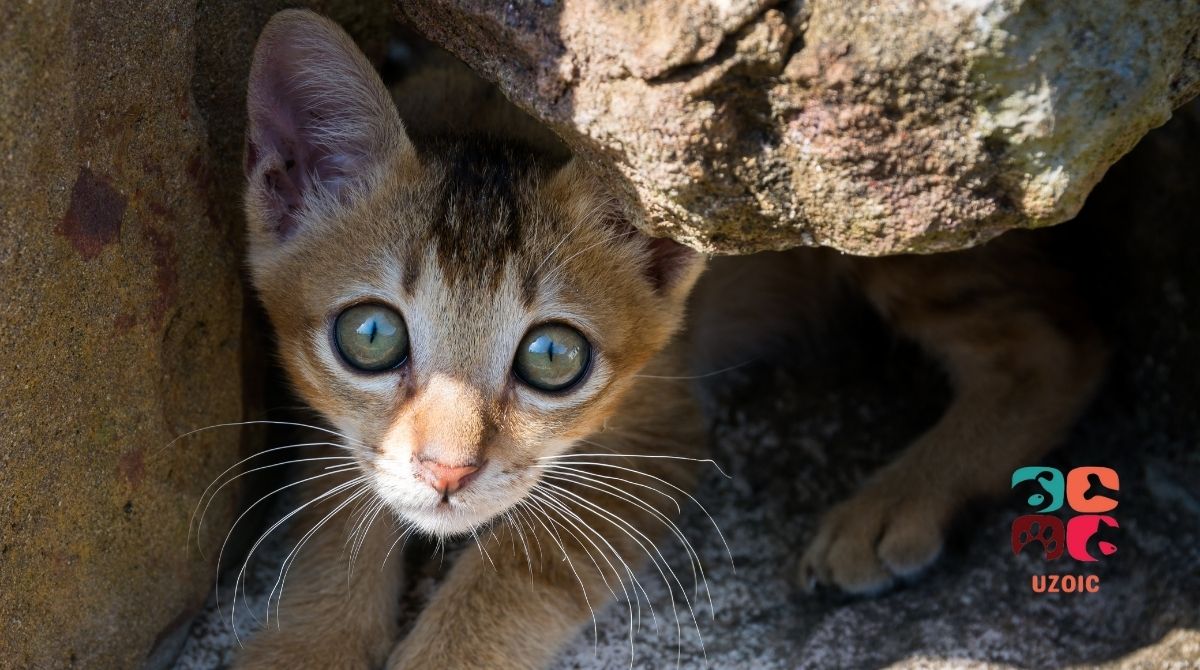It can be incredibly stressful when you rescue a stray kitten from the streets and it does not eat any food. This is a common behavior observed in feral kittens. You are rightfully concerned about your stray kitten’s health, and there can be several underlying reasons why your stray kitten is not eating. This post will help you understand the top reasons why your stray kitten is not eating food and what you can do about it.
I can strongly relate to this topic as I had a stray kitten who refused to eat after getting rescued. I truly appreciate the fact that you chose to rescue and care for a stray kitten. They have it very rough on the streets, and believe it or not, many stray kittens die of starvation for multiple underlying health reasons. Now that you have brought the kitten home, you must take care of it. Stray kittens refusing to eat is a serious issue and must deal with urgency. So, stick around till the end of this blog post as we explore the reason behind it and what exactly you must do to help your stray kitten recover its appetite.
Table of Contents
Why Is Your Stray Kitten Not Eating?

Your stray kitten is not eating because your kitten is sick and not feeling well. Stray kittens can have multiple health issues preventing them from having a good appetite. Top health issues that impact a kitten’s willingness to eat are parasites such as Cuterebra Botfly Larva that clog the nasal passage, constipation, upset tummy, or an infection.
Other reasons why your stray kitten may not be eating are:
- Feeding them something they do not like
- Food is too large for them to eat conveniently
Common factors that cause your kitten to stop eating:
- Stress
- Anxiety
- Fear
- Pain
- Depression
Pay close attention to the symptom that your kitten is showing. Not eating is the result of one of the symptoms.
How Do You Get A Stray Kitten To Eat?
Diagnose the root cause of the problem by visiting a vet. A vet will be able to check for the above health issues and perform the necessary actions. For example, suppose it is an infection. In that case, a few antibiotics will clear out the same, and your kitten will be happy and healthy fast. For botfly larva, the vet will have to extract it out from the nasal passage with the help of surgical instruments. Once you have addressed the root cause of the illness, your stray kitten will get its appetite back and start eating.
It is important to diagnose the issue as quickly as possible; otherwise, your poor kitten will dehydrate itself and die of hunger and thirst. So get a vet appointment at the earliest.
One more thing that you can try is to feed your kitten when you are not around. Just observe remotely with a camera to see if your kitten is eating or not. If it does start eating, it means your stray kitten is not comfortable with human presence. You can slowly train your kitten to eat by giving them treats that they love, such as chicken or catnips. They need to acclimatize to human presence.
What To Do If A Kitten Is Refusing To Eat?
As discussed above, identifying and addressing the root cause with the help of a vet will surely solve this problem. It is not that the kitten does not want to eat, but rather, it is unable to eat due to sickness. You may notice your kitten getting weaker and thinner by the day if it does not eat. Hence, a full medical check-up at the vet is the recommended action in this situation.
I had a stray kitten that refused to eat for several days, and I was also looking for a solution to this problem. After a quick search on the internet forums, I understood that my kitten required a vet’s attention. And true indeed, the vet saw a large cuterabra in the nasal passage, causing the kitten to be in extreme pain. Luckily, the vet extracted it, and I could see the kitten feeling so relieved once it was out. In a matter of a few days, my kitten’s appetite returned to normal.
Also, as I shared above, check to see if your presence is stopping the kitten from eating. Small stray kittens are not used to having humans around them. They are usually protected from the outside world by the mother cat. The unfamiliar environment can trigger stress and anxiety, making them lose their appetite. You will have to gain your kitten’s trust. You can start with what I call the “Tuna Trick.” Put some tuna on a plate and keep it in front of the kitten while you are around. Your kitten will move closer to you with every refill and maybe even allow you to pet it while it munches on the tuna.
In most cases, I have seen that the kittens love tuna, and they will appreciate your kindness. Once it feeds on its first tasty morsel from the human, they will be more trustworthy of you and leave the timid behavior behind 😊
How Long Can Stray Kittens Go Without Food?
Stray kittens can go without food for up to a maximum of 72 hours, after which they will fall seriously ill. After that, their organs will begin to fail, and they will eventually die.
Hence, it is important to identify any health or behavioral problems early on and address it. Feral cats have it very rough on the streets. They face competition from other cats, predators, and whatnot. And they are not always successful in their daily hunts. As per a study on feral cats, they were successful in hunting once in 15 attempts and ended up having food just once a day. And we are talking about adult feral cats. This means that for a stray kitten that is still a small baby, there is no chance of survival if the mother cat is not around to feed and protect it. So these are some of the factors that can impact your stray kitten’s appetite.
Conclusion
This brings us to the conclusion of this topic. I hope that you have found the information useful and that you were able to address the problem of your stray kitten not eating any food. I am glad that I could help out another cat lover friend!
Remember, look out for the symptoms early on. Take your kitten to the vet for a comprehensive check-up. If there are no health issues, then address your little kitten’s fear and anxiety aspects, as I mentioned in this post. You will have a happy purring kitten in a few weeks 😊
Also Read:
- Flea Collar for Cats: Does It Make Them Lethargic?
- What Are Those Squiggly Lines in My Cat’s Eyes? A Guide to Eye Health for Cats
- Why Does My Cat Hate Everyone Except Me?
- My Cat Hissed At Me For The First Time: What Does It Mean?
- My Cat Is Leaving Food Crumbs: What’s Wrong?


